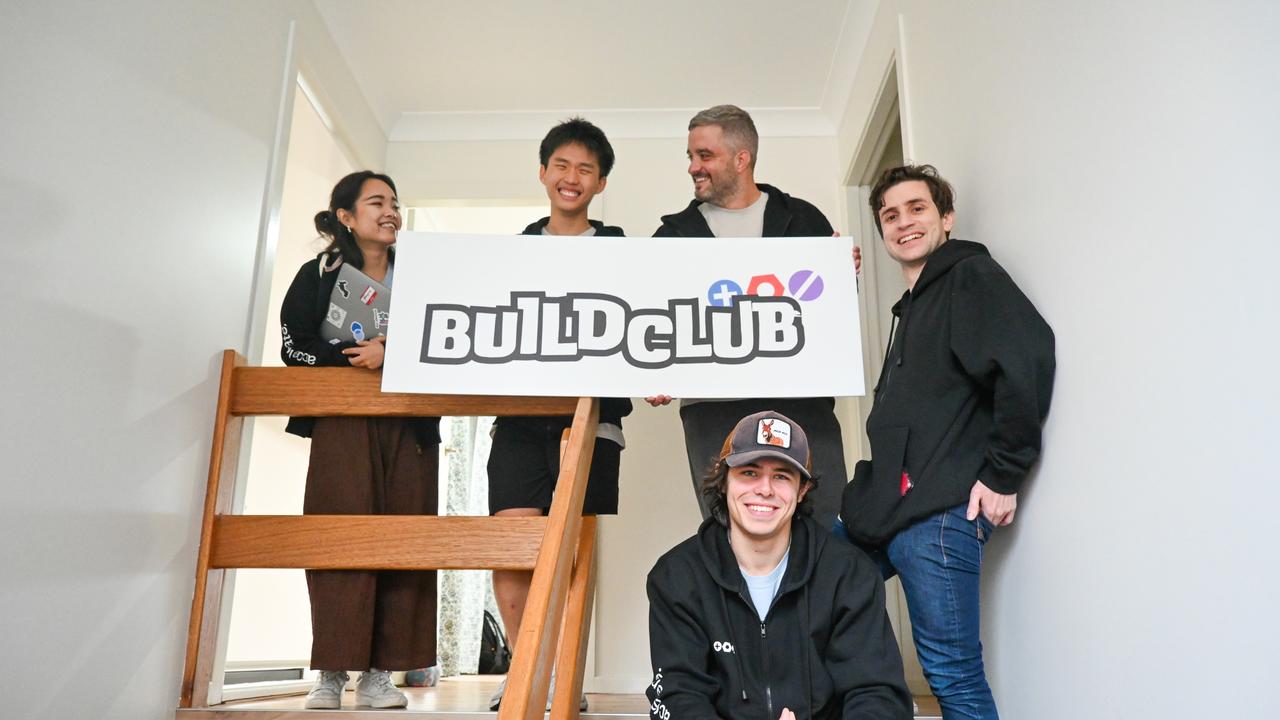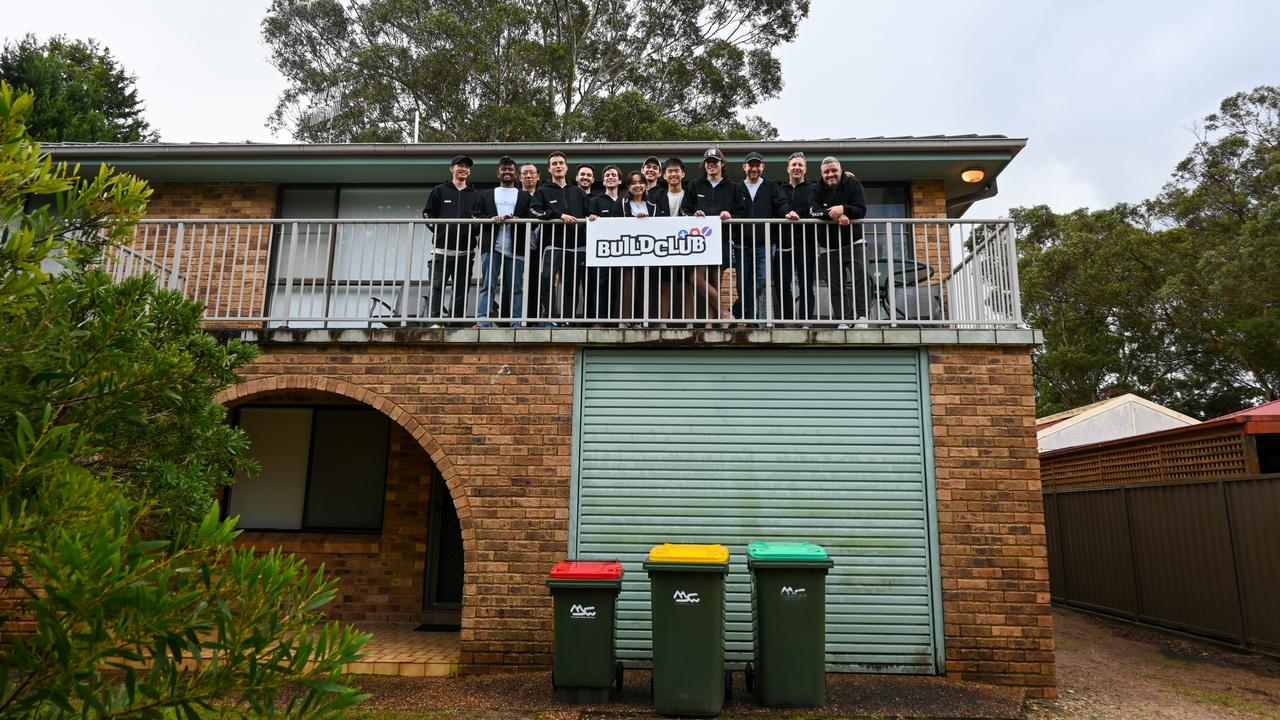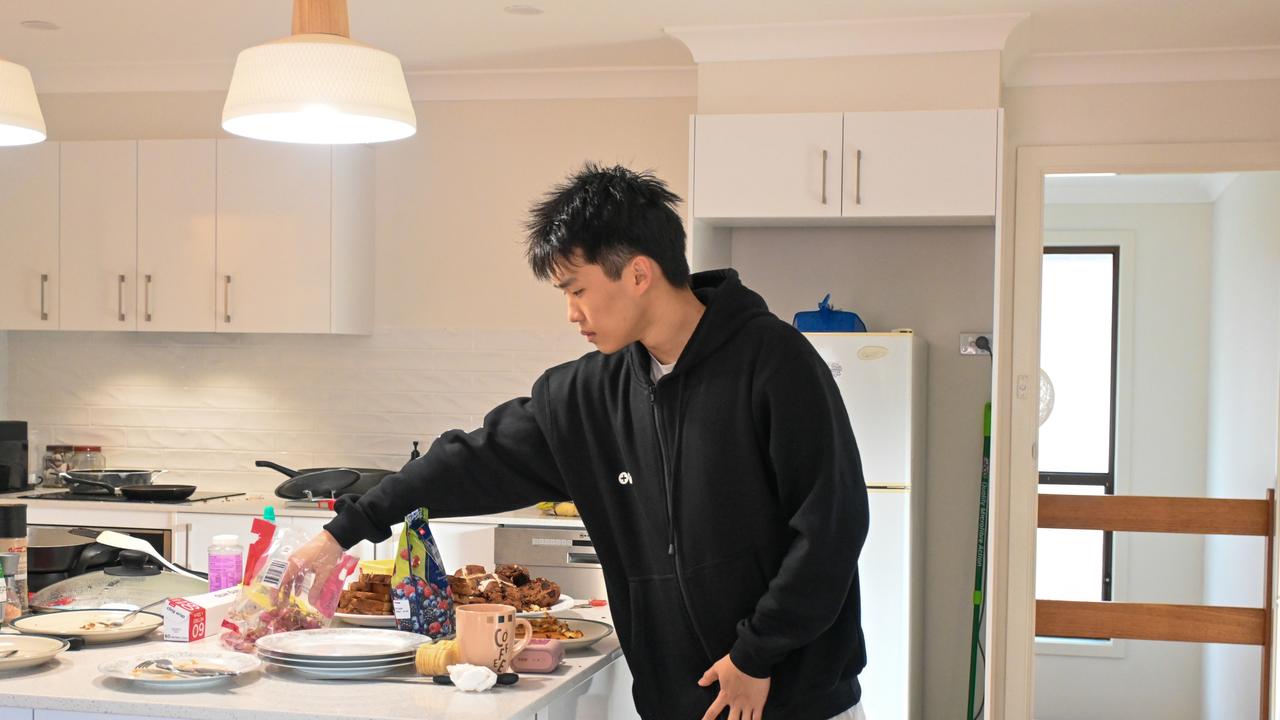Inside Australia’s first AI ‘hacker house’ designed to bring start-ups togther
The concept is popular in the US and has been briefly tried here but the woman behind Build Club’s hacker house is confident about her AI start-up incubator’s prospects.

Business
Don't miss out on the headlines from Business. Followed categories will be added to My News.
Annie Liao yields quite some power.
Last week the 23-year-old tech start-up worker convinced four people in their 50s to crash on bunk beds in a five-bedroom house a little over 2.5 hours’ drive from Sydney.
It wasn’t one of those random surf camps along the NSW coast or some kind of military or fitness camp but rather a “workcation” for some high-profile tech workers, including one of the founders of Google Maps – Stephen Ma.
“It was probably the first time I’ve slept in a bunk bed since high school,” Mr Ma, 53, told The Weekend Australian.
Mr Ma left Google in 2011 and is now working on a new AI project called Jaffle Labs which is building dashboards for eCommerce businesses that predict revenue based on where the business is advertising.
It has been accepted into a designated AI accelerator run by Build Club, which Ms Liao founded mid last year. The accelerator is sponsored by Amazon Web Services (AWS), Nvidia, Aura Ventures, Airwallex and Stone & Chalk.
Stone & Chalk recently gifted Build Club, which has about 800 start-ups in its community, a physical office space inside its scale-up hub in Haymarket, by the Capitol Square light rail stop.

The new house, where 15 people including Mr Ma spent a couple of nights last week, is an extension of Ms Liao’s Build Club – one that she hopes can largely replicate popular “hacker houses” in the US, where start-up founders and so-called tech bros co-live and build their own businesses.
“I think a lot of it was inspired by the hacker houses in San Francisco. It was really surprising when I went over there,” she told The Weekend Australian.
“Basically everyone in tech lived together in hacker houses and they were really immersed in the scene and could concentrate a lot more.”
Ms Liao stayed in a one called Pocky House, named after the Japanese snack because several of those living there had covered an entire wall in empty Pocky boxes.
She spent a little over a week there at the same time as the founders and team behind cyber security start-up Nullify, which raised $5.2m in March.
In Australia there are currently none of these, Ms Liao said.

But she isn’t the first to try to build one. Australian tech bootcamp Earlywork attempted a similar concept, which it called Earlyhome, in 2022.
It ran for three months as an experiment with five founders and tech workers in Wollongong before being shut down.
Another, called Draperhouse, which has about a dozen global sites including one in Bali, Indonesia, also opened one of its entrepreneur accommodation projects in Melbourne in December 2022. It no longer appears to be running.
Ms Liao predicts a different future for Build Club, which is owned by one of her associate’s parents and has been secured at an affordable price.
In July, Build Club will open to its first residents who will try living in the home for four weeks, paying either $150 for a shared room or $200 for a private room.
It’s not just open to anyone. An application process is under way and founders will need to pitch what they’d like to achieve while staying there, what they’re attempting to build and what the “coolest” thing they have ever built is.

In exchange they’ll get near beachfront living, low-cost rent, Starlink high-speed internet, access to other founders and participate in weekly pitch competitions whereby other founders will provide constructive feedback and occasionally “roast” them on their mistakes.
“It’s like an environment where you have maximum focus and zero distraction,” she said. “The vision we’re working towards is a world where you wake up in the morning and everything you need to build a great start-up or your dream business is within a five-minute radius of you.”
For Mr Ma, who was part of a group of 15 people to give the house a test last week, he said at this stage in his life he probably couldn’t spend a whole month in a hacker house. But he did enjoy the experience.
“One of the good things is being surrounded by a lot of other people who are basically on the same journey as you,” he said.
“For us at Jaffle Labs, we did get a lot of help. We’ve been doing a process for customer discovery and we’ve had a lot of suggestions from other people who’ve gone through the same journey as us.”
While the first lot of tenants will stay just four weeks, Ms Liao said Build Club was considering extensions of between two to three months.

“It’s meant to be quite intense so it’s probably best for people not to stay for six months at a time,” she said.
“Ideally you go in for maybe two or three months and then you get to the stage where maybe you’ve grown and need to be in the city to meet customers.”
More Coverage
Originally published as Inside Australia’s first AI ‘hacker house’ designed to bring start-ups togther









